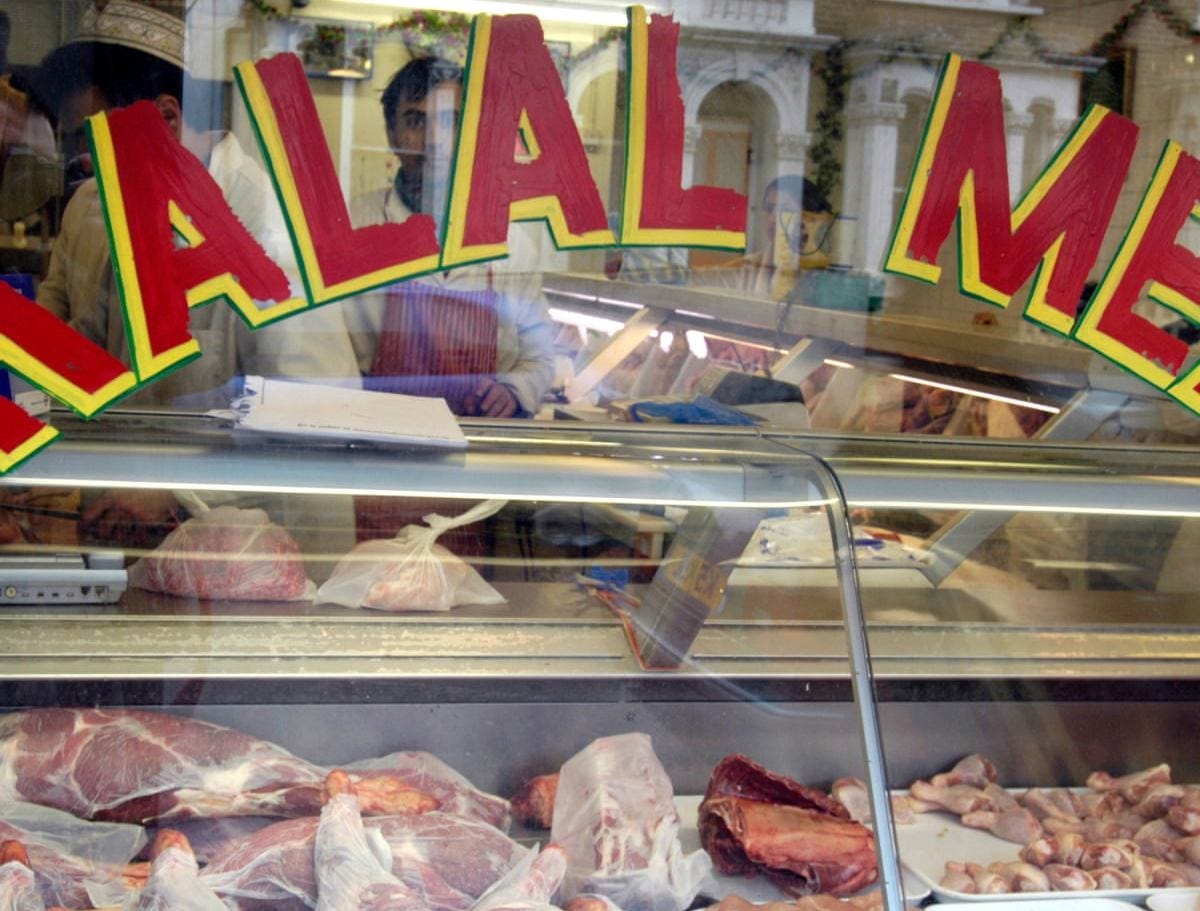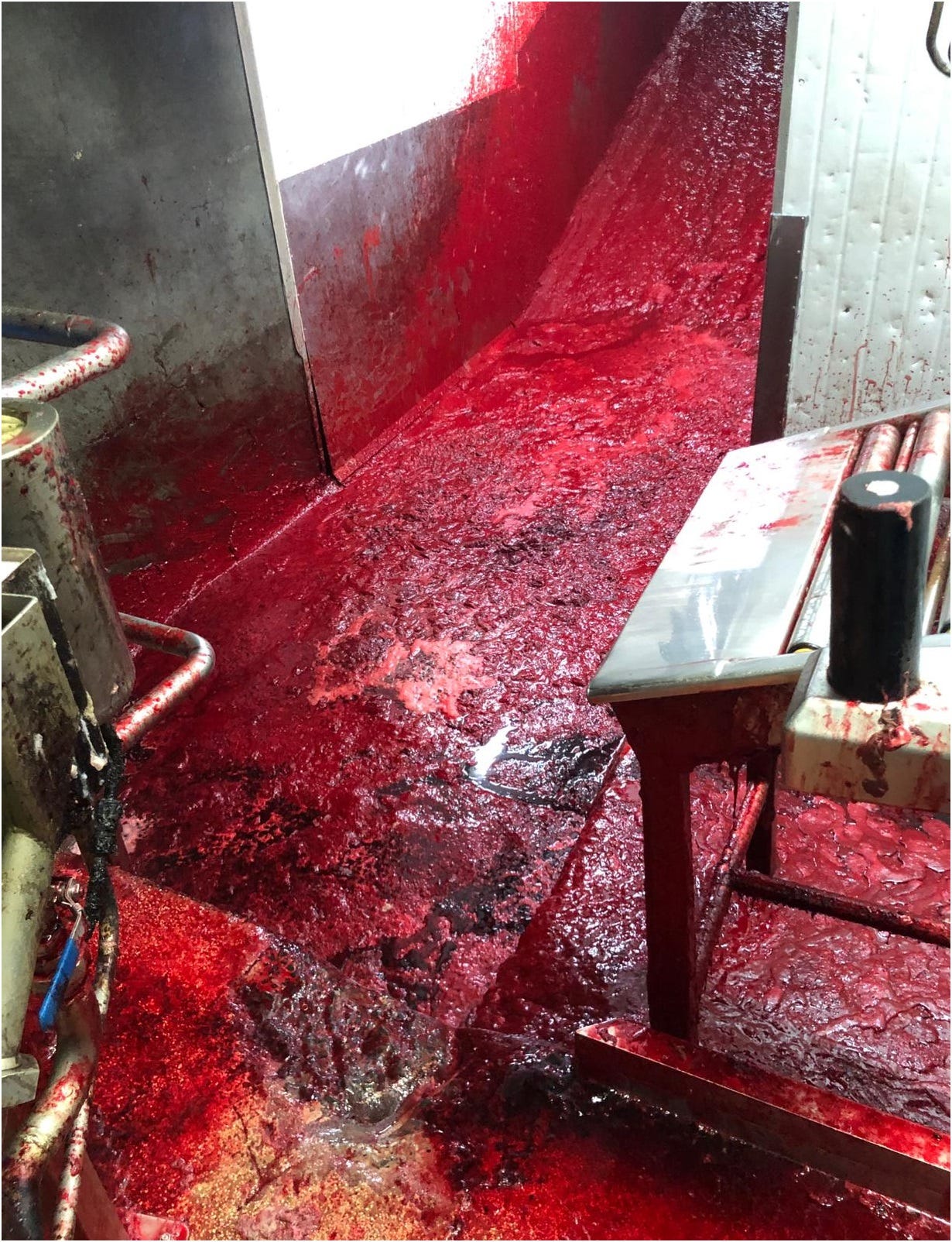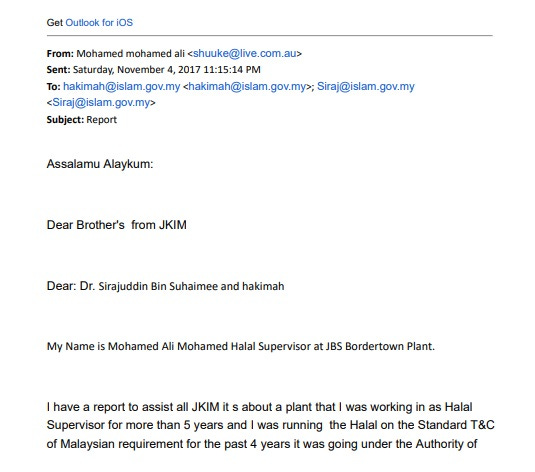Horrific Cruelty Ignored in Halal Food Production
Islamic authorities still turn blind eye to Halal integrity
By: Murray Hunter

Corrupt and irregular practices in Southeast Asia’s international halal certification process, which certifies food as killed under appropriate religious customs for Muslims, are continuing according to witnesses and financial documents despite being exposed by Asia Sentinel in 2019.
The inescapable conclusion is that millions of devout Muslims are unknowingly eating meats that do not meet religious standards, some taken from animals subjected to appalling cruelty.
At the time of Asia Sentinel’s earlier probe, the allegations were strongly denied by the then minister responsible for the Department of Islamic Development Malaysia Mujahid Yusof Rawa, and eventually led to two inquiries spanning more than a year at Singapore’s Majlis Ugama Islam Singapura (MUIS).
Although the Singapore government concluded that no improprieties occurred, a shocking series of photographs and videos obtained by Asia Sentinel that were taken clandestinely at the Thomas Foods International plant at Lobethal, South Australia, during February and March, support witness accounts of breaches in halal slaughtering protocols.
According to corroborated reports by witnesses, as the shift lengthens in time, lambs are switched from having their throats cut and bled out to being forced to drown in the blood that accumulates from previously killed ones. Animals are not bled out, as is required in halal slaughtering requirements.
As Asia Sentinel’s previous reporting demonstrated, although nothing this horrific has been found in other plants, many are believed out of compliance for other reasons for the simple fact that authorities don’t check them. Indeed, immediately after being asked for comment and before Asia Sentinel’s publication, according to well-connected sources who don’t want to be named, SICHMA representatives went to the site to order it to be cleaned up. There is also a hunt for those who spoke to us.
 The drowning pit
The drowning pitMost of these renewed allegations still center around the Australian certifying body the Supreme Islamic Council of Halal Meat in Australia (SICHMA), with nothing apparently done to investigate or stop these regularly occurring breaches of halal certification protocols at the time of animal slaughter. The Australian halal meat council is also a foreign certifying body (FCB) for Singapore’s Islamic body MUIS.
Under Muslim strictures, four-person teams are required to undertake the above process – two slaughtermen, one halal checker, and one supervisor. However, in order to save cost to the manpower company that supplies the slaughtermen, workers told Asia Sentinel that only three workers conduct the process unless an audit team from the Malaysian Department of Islamic Development is scheduled to visit the plant. According to the Ministry of Agriculture and Food Industries, the site was Halal certified at the TFI plant was on July 22, 2019 – 30 months ago.
Asia Sentinel also provided the evidence gathered to an expert on abattoir operations, who drew attention to lapses in veterinary health issues. Abattoir working areas are usually sprayed down with water every 15-20 minutes to prevent the buildup of fat and blood, which very quickly become breeding grounds for harmful bacteria like Escherichia coli and Staphylococcus aureus, which can very easily contaminate meat.
The mandatory minimum “bleeding time” required by the Islamic Development Department is four minutes. The “bleeding time’ is a period of allowing blood to drain out before any other processes can be performed on the slaughtered animal. Bleeding time is essential as it confirms that the animal died due to proper slaughtering. Sadly, as seen in the photos, these animals died due to drowning in the blood of other animals that were slaughtered earlier.
In the photos submitted to Asia Sentinel, these animals were drowned to hasten their death. Thus the animals are classified as bangkai, animals/carcasses that died not from slaughtering in accordance with Islamic/Shariah regulation but from other causes that render the carcass haram, or forbidden for Muslims to consume.
 Lambs forced to drown in blood.
Lambs forced to drown in blood.The big question is why the Australian Islamic halal council and its subcontractors have long allowed such practices to occur which render meat non-halal. In addition, why haven’t Australian veterinary, health, and safety authorities stepped in on health and general sanitation grounds? A spokesperson for SICHMA, asked for a response to the lack of oversight over the Thomas Foods plant, declined to give an explanation and accused Asia Sentinel of continuing bias.
Complaints about the lapses in adhering to Malaysian halal protocols and requirements were made by a concerned slaughterman direct to the Malaysian Islamic Development Department in 2017. However, these complaints were left unanswered, nor were they followed up by the department.
Financial integrity issues
Although the Islamic development department’s former head of the Halal Strategic Unit, Sirajuddin Suhaimee, and now deputy director general for operations, stated on video in 2019 that he wanted to build SICHMA into the best halal certifying body in Australia, there are renewed issues and claims concerning lapses of financial and halal integrity.
The Australian halal council has been using a number of delisted companies to supply slaughtermen to abattoirs and undertake halal supervision of slaughter operations. Halal Help, and Halal Care Pty Ltd are both delisted companies, according to the Australian Securities and Investments Commission (ASIC) database. According to witnesses, this is allowing the owners of these defunct companies to operate without paying income and goods and services taxes (GST). Payment records seen by Asia Sentinel of slaughterman wage payments appear to support that claim.
The slaughtermen don’t enjoy the same conditions of work TFI employees do, as they are contracted to the plant by the defunct subcontractor Halal Help Pty Ltd. A number of slaughtermen employed by the above companies have supplied Asia Sentinel with screenshots of online wage payments, with commissions deducted by their direct employer named who they named as Ali. These commissions amount to A$350 per week deducted from the slaughtermen’s wages, a charge they must pay for the privilege of having the job. Here is a Zoom meeting with some of the slaughtermen.
Others through statutory declarations made available to Asia Sentinel claim they were denied medical expenses for onsite work-related accidents. Sometimes payments to slaughtermen come from other business entities including Zia’s Industrial and Agricultural Suppliers and Alis Land and Industrial Services.
In a high-profile arrest, the Smithfield Mosque Mufti Jasmin Bekric was arrested last October and charged with seven counts of fraud for allegedly misappropriating donations for overseas charities. The mufti is a member of the Australian halal council’s fatwa council. It is understood that police are continuing investigations of other improprieties.
There many are questions about financial integrity, with delisted companies hired by the Australian halal council clearly carrying out the certifying body’s responsibilities on plant floors.
Halal integrity at stake
Malaysia’s Islamic Development Department has been made aware of the above issues for years. There has been no attempt to correct these threats to halal integrity and the basic health and safety of meat destined for Malaysia. On the evidence provided to Asia Sentinel, some are clearly not halal. Much of it can be classified as bangkai, which is clearly forbidden. In addition, hygiene and financial irregularities within the appointed foreign certifying body of the Australian halal council leave many questions to be answered.
JAKIM director general Hakimah Mohd. Yusoff and MUIS president Mohamed Sa’at Abdul Rahman were asked for an interview. Neither replied. Both were sent a copy of this article before it was published and asked for comments and clarifications.
Although the Islamic development department’s former head of the Halal Strategic Unit, Sirajuddin Suhaimee, and now deputy director general for operations, stated on video in 2019 that he wanted to build SICHMA into the best halal certifying body in Australia, there are renewed issues and claims concerning lapses of financial and halal integrity.
The Australian halal council has been using a number of delisted companies to supply slaughtermen to abattoirs and undertake halal supervision of slaughter operations. Halal Help, and Halal Care Pty Ltd are both delisted companies, according to the Australian Securities and Investments Commission (ASIC) database. According to witnesses, this is allowing the owners of these defunct companies to operate without paying income and goods and services taxes (GST). Payment records seen by Asia Sentinel of slaughterman wage payments appear to support that claim.
The slaughtermen don’t enjoy the same conditions of work TFI employees do, as they are contracted to the plant by the defunct subcontractor Halal Help Pty Ltd. A number of slaughtermen employed by the above companies have supplied Asia Sentinel with screenshots of online wage payments, with commissions deducted by their direct employer named who they named as Ali. These commissions amount to A$350 per week deducted from the slaughtermen’s wages, a charge they must pay for the privilege of having the job. Here is a Zoom meeting with some of the slaughtermen.
Others through statutory declarations made available to Asia Sentinel claim they were denied medical expenses for onsite work-related accidents. Sometimes payments to slaughtermen come from other business entities including Zia’s Industrial and Agricultural Suppliers and Alis Land and Industrial Services.
In a high-profile arrest, the Smithfield Mosque Mufti Jasmin Bekric was arrested last October and charged with seven counts of fraud for allegedly misappropriating donations for overseas charities. The mufti is a member of the Australian halal council’s fatwa council. It is understood that police are continuing investigations of other improprieties.
There many are questions about financial integrity, with delisted companies hired by the Australian halal council clearly carrying out the certifying body’s responsibilities on plant floors.
Halal integrity at stake
Malaysia’s Islamic Development Department has been made aware of the above issues for years. There has been no attempt to correct these threats to halal integrity and the basic health and safety of meat destined for Malaysia. On the evidence provided to Asia Sentinel, some are clearly not halal. Much of it can be classified as bangkai, which is clearly forbidden. In addition, hygiene and financial irregularities within the appointed foreign certifying body of the Australian halal council leave many questions to be answered.
JAKIM director general Hakimah Mohd. Yusoff and MUIS president Mohamed Sa’at Abdul Rahman were asked for an interview. Neither replied. Both were sent a copy of this article before it was published and asked for comments and clarifications.

No comments:
Post a Comment